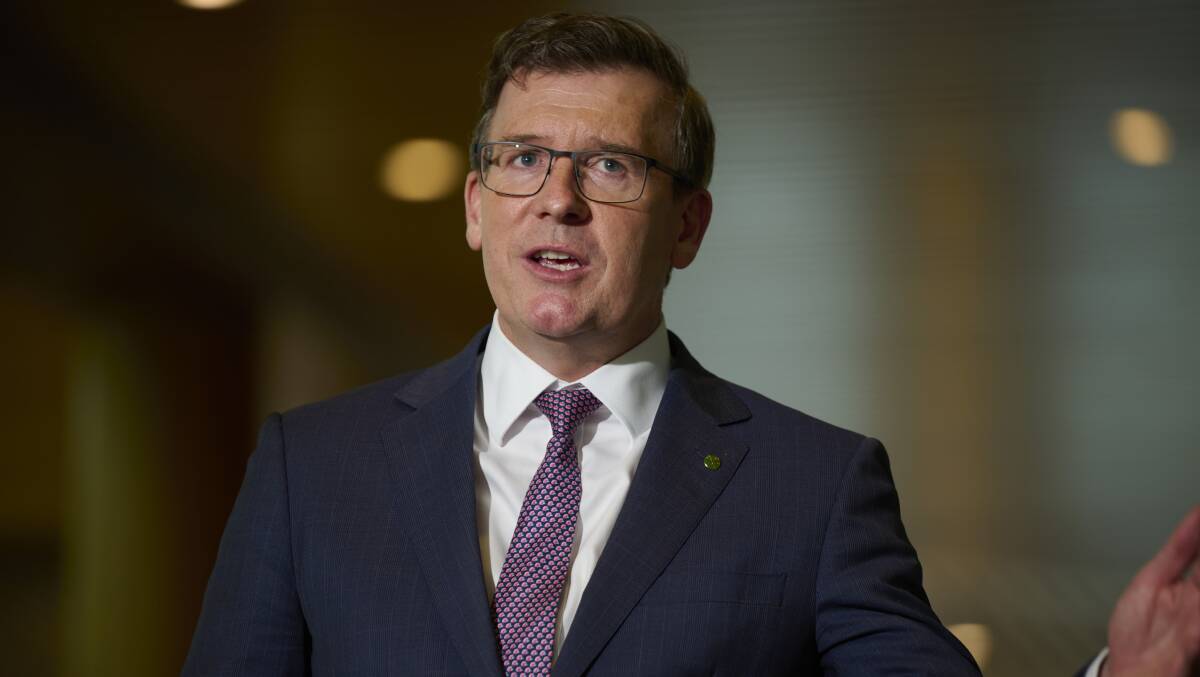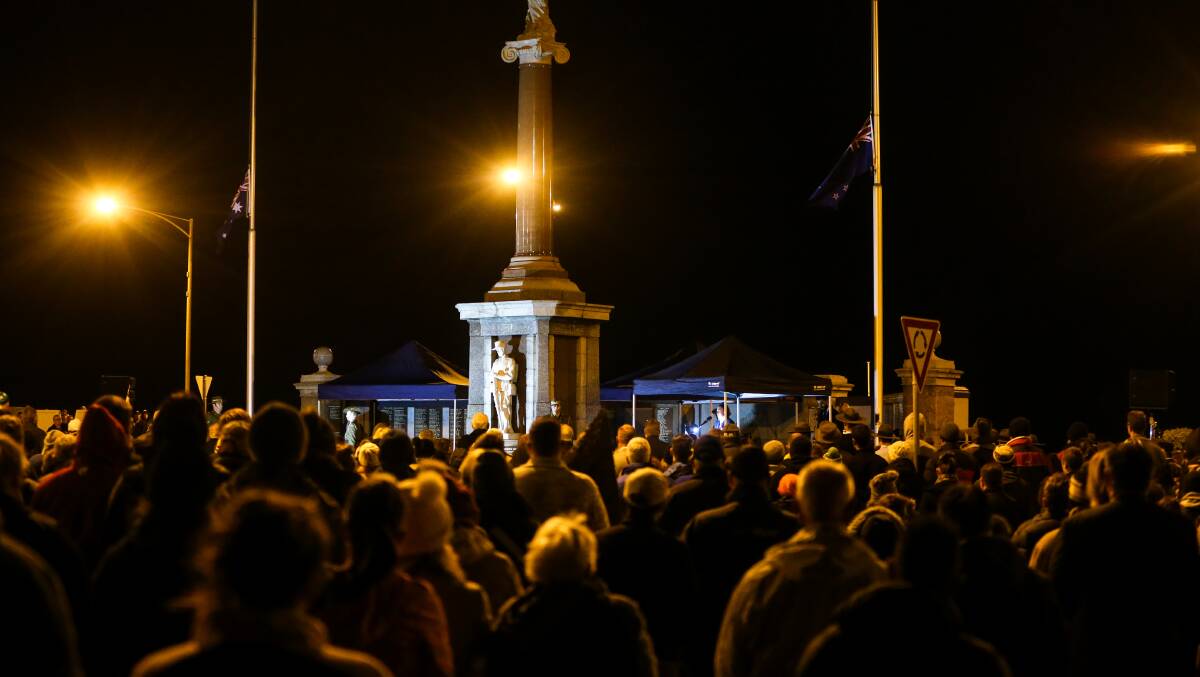
It must truly be difficult to be a politician. You say one thing, you mean another. If you are in government, you ignore your constituents and, on some occasions, even prohibit those voters from seeing what you do and what you say. God forbid we should ever have bushfires or pandemics.
Subscribe now for unlimited access.
$0/
(min cost $0)
or signup to continue reading
Let me introduce you to Alan Tudge, Australia's Minister for Education. On Wednesday, in the light of the High Court's decision on Peter Ridd's dismissal from James Cook University, he said he was deeply concerned about free speech.
This week, the High Court handed down its judgment on Ridd, sacked for criticising colleagues for their research on the Great Barrier Reef. He said their work wasn't properly checked, and some scientists were "emotionally attached to their subject".
That's not why Ridd lost his job, though. He lost his job because he allegedly breached confidentiality of internal processes while being disciplined. That's why his sacking was upheld by the High Court, which also said the university was wrong to censure the professor over honestly held beliefs.
And as soon as that decision was published, Alan Tudge, free speech warrior, went on the front foot.
He said in a statement: "While I respect the decision of the High Court, I am concerned that employment conditions should never be allowed to have a chilling effect on free speech or academic freedom ... the most fundamental principles of a university. University staff and students must have the freedom to challenge and question orthodoxies, without fear of losing their job or offending others."
Alan Tudge has one rule for universities and another for himself. Last month he went berserk when he discovered the new national draft history curriculum included the contested nature of Anzac Day. Holy hell. How about that? And while he was doing that, either he or his staff was blocking every person on Twitter who disagreed with his thesis that Anzac Day was a sacred site and should never be contested - a weird flex for a guy who says he's all about free speech.
For as long as I have been alive, there have been differing ideas about Anzac Day. My kids are in their 30s. Their teachers gave them a broad understanding of what Anzac Day was about, including the monumentally poor judgment of the British.
But you know, I'm getting on a bit - so I wanted to check my memory with Australia's leading Anzac Day expert, Alistair Thomson, from Monash University.
He says commemoration was contested from the get-go. It's the whole Hamiltonian, "who lives, who dies, who tells your story" thing. Thomson reminds me that commemoration of Anzac Day nearly died out in the '20s, had an uptick in the '30s, attracted a tonne of critique in the '60s and was revived in the '70s, when we wanted to have a significant national story to tell, on its way to the massive commemoration it is today.
"But if you say this is sacrosanct and cannot be questioned, that's not too far removed from what happens in China today where the government insists on one story," Thomson says.
"Anzac Day is the story of Australians at war, and that needs to be questioned. Sometimes we are brave and sometimes we run away. Sometimes we are generous and sometimes we kill prisoners."
Thomson's two granddads fought in the war and his father was a soldier for most of his life, so there is a personal need, as well as a professional one, to understand the story.
"But you can't just let a particular version of Anzac Day get told," he says.
"If you are going to have a national curriculum, you need students to be able to think critically about the past and to make informed judgments about it. I'm not going to tell my students what to think.
"I'm not surprised by the minister's position, but I am disappointed. We need to be more nuanced, more sophisticated."

I asked the minister's office why there was so much reluctance to engage with critique on the issue. I was told only the rude or offensive were blocked.
Somewhat of a surprise to those who responded to any tweets from the minister's account about not being able to "advance knowledge without challenging existing orthodoxies", his earlier Anzac Day tweets, his tweets about why teaching about Indigenous history was important but "not at the expense of our Western heritage".
Victorian teacher Luke Herring revealed his very mild-mannered tweet about students who were interested in Indigenous history and "interested in the truth" received an immediate block. There are so many other stories of educators who now cannot see what the Minister for Education says. This behaviour is from the man who said as recently as Wednesday, "Ultimately, what we want to see is viewpoint diversity so that students are challenged with different ideas."
But not from voters.
"People's views need to be challenged, even his," she says.
"When members of the government are offended, they want to be able to control the debate. That's hypocrisy."
READ MORE:
She says that if the minister was really keen to protect academic freedom he would address the extreme job insecurity and casualisation at Australia's universities, because it is those precarious people who are afraid to speak out.
Twitter affords some of us the ability to speak out, but it can't force politicians to listen.
QUT's Tim Graham, an expert in online networks, understands the utility of the block mechanism on social media - it allows users of the platform to cordon themselves off from abuse and harassment.
But as he says, "Politicians have the provilege of being able to speak freely. They are able to project their voices into mainstream media, and regular everyday people don't have that opportunity."
He says that the block mechanism, when wielded by politicians, disrupts powerful co-ordinated collective activism.
"[They] can simply mass block, and that reduces the ability for social mobilisation," he says.
And at a time like this, when we can't demonstrate unless we are raving lunatics, that impact is doubly hard.
Says Graham: "It takes away the street."
This tells me Alan Tudge wants to be heard. He wants his mates to be heard. But he doesn't want to hear from the rest of Australia.
- Jenna Price is a regular columnist and a visiting fellow at the Australian National University.


